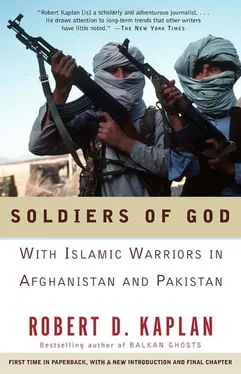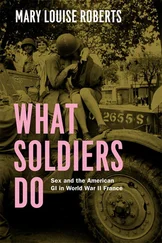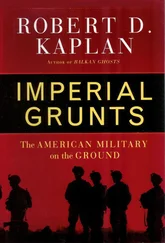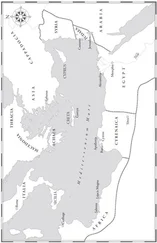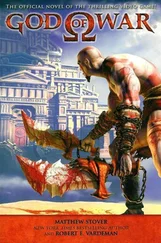The overwhelming majority of hospital patients in Peshawar and Quetta were mine victims. After Red Cross doctors operated on them, the wounded were dispatched to clinics run by the various mujahidin political parties to recover. These clinics lived on donations from the refugees themselves and usually received little or no aid from either international relief organizations or the Pakistani government. Pakistani landlords owned the clinics and charged as much rent as they could. In the heat of summer, when temperatures rarely dipped below ninety degrees in daytime, there were no fans or air conditioners for the patients, who were accustomed to the bracing mountain climate of Afghanistan. The clinics were short of nearly everything, including food.
Of the twenty patients I saw at a clinic in Quetta one day in July 1988, sixteen were missing at least one limb. Many of the mine accidents had occurred only two or three weeks earlier. But there were no signs of illness or general physical weakness on the victims’ faces, even though most of them not only had lost large quantities of blood and eaten little in the intervening period, but also had to endure days of travel on a mule or in a lolloping four-wheel-drive vehicle before getting to a proper medical facility.
Many people have the idea that once a limb is amputated the pain stops. That’s not true. Pain from damaged nerve tissue lasts for months, usually longer if a clean amputation is not done soon after the accident, which was always the case in Afghanistan, where painkillers were not always available. Add this to weeks of drugged discomfort, for patients were all but drowned in antibiotics in order to prevent tetanus and other infections caused by mine fragments.
Yet, despite the pain and a missing arm or foot, the patients in these wards looked healthy and normal. There was a vibrancy in their faces, a trace of humor even, and a total absence of embarrassment. “I have given my foot to Allah,” said a twenty-seven-year-old man who also had only one eye and a burned, deformed hand. “Now I will continue my jihad [holy war] in another way.” This man had a wife and three children. At first, I dismissed what he said as bravado meant to impress a foreigner. I found it impossible to believe that he really felt this emotion, that he truly accepted what had happened to him. His eyes, however, evinced neither the rage of a fanatic, which would have accounted for his defiance, nor the shocked and sorrowful look of someone who was really depressed. If anything registered on his face when I spoke to him, it was bewilderment. He didn’t seem to understand why I thought he should be unhappy. He had lost an eye, a foot, and part of a hand — and that was that.
The Afghan mujahidin came equipped with psychological armor that was not easy to pierce or fathom. They had the courage and strength of zealots, but their eyes were a mystery. Their eyes were not the bottomless black wells of hatred and cunning that a visitor grows accustomed to seeing in Iran and elsewhere in the Moslem world. There was a reassuring clarity about them. Sometimes, while I was talking and sipping cups of green tea with the mujahidin, their eyes would appear so instantly recognizable to me that I thought they could have been those of my childhood friends. How could people with such familiar, nonthreatening eyes walk so readily through minefields?
Western journalists and relief workers were not so brave. We were afraid of going “inside” — crossing into Afghanistan from Pakistan. And the more often you went “inside,” the more terrified you became. Only a handful of photographers and cameramen went repeatedly, for after a few trips over the border, a print reporter could understand the story from Pakistan. This was why so many of us didn’t venture far from Peshawar, the capital of Pakistan’s Northwest Frontier province, which functioned as the rear base of the Afghan resistance. The relief workers who went “inside” were doctors trained in emergency surgery and vetted for mental and physical toughness. “The longest, most searching interview I ever had for a job was with Aide Medicale Internationale prior to being sent to Afghanistan,” said Simon Mardel, a London surgeon and an accomplished mountain climber who had also worked in a state hospital in India.
In addition to Afghanistan’s mines, a reporter had to contend with boredom, disease, and exhaustion. The food, when there was more than plain rice and onions to eat, was abominable. The meat was often filled with maggots. You could be felled by bad water. Dysentery was prevalent, along with hepatitis; getting a mild case of vivax malaria was definitely preferable. And all this was what a journalist went through merely to get to the fighting.
Every war, particularly in the Third World, involves risks of disease and danger. But no other war in recent times required journalists to walk up and down mountains as much as fourteen hours a day. Vietnam had helicopters. Every country in Africa has small planes and jeeps. Beirut offered luxury hotels with first-class cuisine next door to the fighting. Afghanistan, though, had only mules for carrying your backpack. In the south, near Kandahar, where vehicles were available, it was too dangerous to travel until the last phase of the Soviet war because the flat terrain was good not only for four-wheel-drive trucks but for helicopter gunships on the lookout for moving mujahidin units. Charles Thornton, a reporter for the Arizona Republic, tried traveling by truck. He was killed in an ambush in September 1985 as soon as he crossed the border.
In “The Man Who Would Be King,” Kipling’s story about two Englishmen who depart the Northwest Frontier to seek their fortune in Afghanistan, one returns to Peshawar a “rag-wrapped, whining cripple.” As for the other, only his “dried, withered head” remained. Nothing like that happened to any journalist I knew, but some came pretty close. Richard Mackenzie, an Australian writer for the Washington Times’s publication Insight, lost forty-five pounds from dysentery during his three and a half months in northeastern Afghanistan in late 1987. Very early in his journey, he was abandoned by his guide and horseman, and later on, while very ill, he was taken prisoner by an extremist mujahidin faction. When Mackenzie showed up in Peshawar, his friends described his physical appearance as “frightening.” Hugo Eriksen, a Norwegian journalist, arrived at a friend’s doorstep in Peshawar in June 1988, after a two-week trip “inside,” with a peptic ulcer and malaria. The rugged, six-foot-plus army veteran collapsed in a chair and whimpered, “I couldn’t take the food, I just couldn’t.” A week later, Eriksen went back inside.
Kipling’s Afghanistan was described by Louis L. Cornell as “a place of externes,” where “circumstances corrode and destroy false appearances.” In the 1980s that was still true. There was no journalist covering the war who didn’t become fearfully ill at least once. If only about a dozen reporters were killed or imprisoned during the ten years of Soviet occupation, it was only because relatively few ventured over the border in the first place.
Many were intimidated by Soviet threats. The Soviet ambassador to Pakistan, Vitaly Smirnov, told Agence France Presse on October 5, 1984, that journalists traveling with the mujahidin “will be killed. And our units in Afghanistan will help the Afghan forces to do it.” This statement drew almost no response or criticism from the media establishment in America, but every newsman assigned to the war heard about it.
This was the only war in which having large amounts of money to spend on coverage did absolutely no good. Elsewhere in the world, Amercian television networks leased vehicles and planes to get to remote areas. In Afghanistan there were none to lease, but mules were cheap enough that the poorest freelancer could afford them.
Читать дальше
